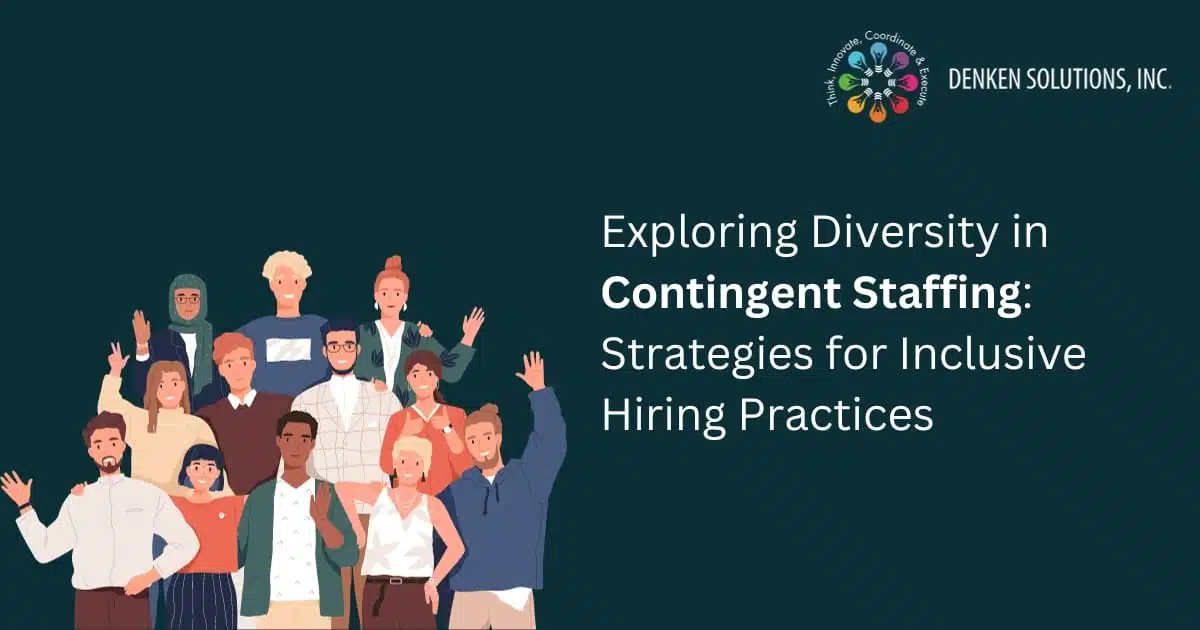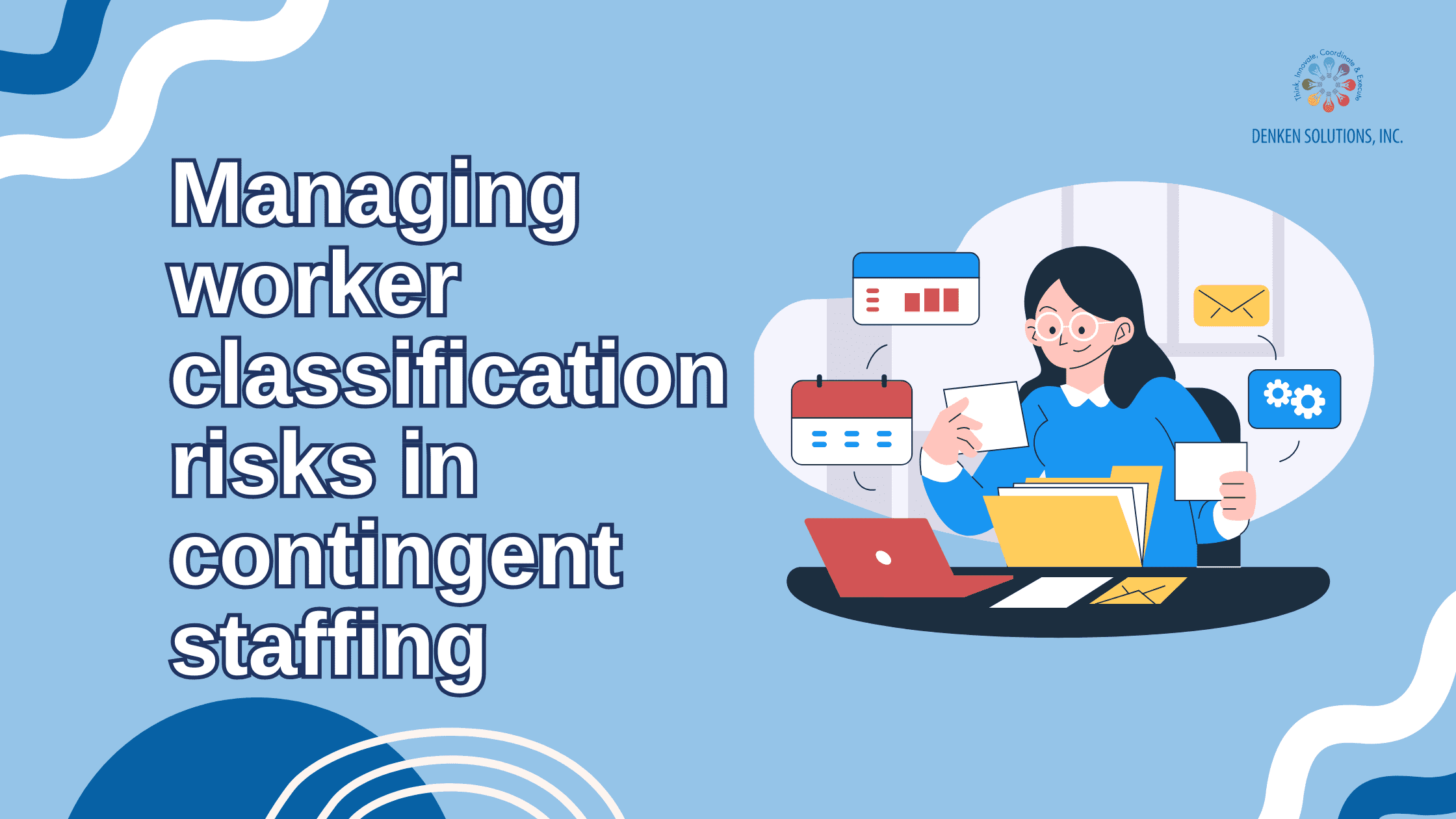Leveraging a Diverse Contingent Workforce Strategy for Business Success
While the contingent workforce has gained momentum over the past few years, achieving diversity in contingent staffing is not an easy task. Motivated by factors such as technological advancements, economic downturns, and increasing demand for remote work norms, organizations today increasingly rely on contingent workers as part of their diverse contingent workforce strategy. This workforce is often dominated by highly skilled labor, who collaborate with full-time employees to fulfill organizational goals. With the rise of the gig economy, it has become essential for organizations to address the well-being of contingent workers just like their full-time counterparts. Employers must prioritize inclusive staffing to create equitable workplaces that support both diversity and inclusion. This article explores the key dimensions of diversity and inclusion, the benefits of embracing inclusive hiring practices for contingent staffing, and actionable best practices.
Understanding the Concepts of Diversity and Inclusion in Recruitment
Diversity and inclusion have long been recognized as critical to creating welcoming and productive workplaces. Research by Harvard Business Review highlights how diversity fosters innovation, collaboration, and financial performance. Diversity refers to the unique characteristics of individuals, including gender, age, race, socio-economic status, and cultural backgrounds. Inclusive staffing practices, on the other hand, focus on cultivating a work environment where these diverse groups are valued and supported equally.
Organizations incorporating diversity into their diverse contingent workforce strategy create opportunities for individuals irrespective of background while fostering inclusivity to ensure everyone feels valued and empowered.
Why Should You Embrace Diverse and Inclusive Hiring Practices for Contingent Staffing?
Acquiring Unique Perspectives and Creative Ideas
Diverse contingent workers bring distinct perspectives, enabling organizations to navigate challenges innovatively. For instance, studies by McKinsey & Company reveal that companies with ethnically and culturally diverse teams are 33% more likely to outperform their peers financially.
Improving Adaptability and Resilience
Contingent workers often possess vast skills and adaptability honed through varied past experiences. Inclusive staffing practices further enhance resilience by ensuring equitable opportunities for these skilled workers, helping businesses thrive in dynamic environments.
Creating a Global Talent Pool
To scale globally, businesses need to understand diverse markets, which is achievable by hiring contingent workers from different countries and cultural backgrounds. For example, global brands like Google leverage diverse talent to succeed in varied regions and industries.
Best Diverse and Inclusive Hiring Practices for Contingent Staffing
To reap the full benefits of a diverse contingent workforce strategy, it is essential that organizations follow the best inclusive staffing practices:
- Create Precise and Inclusive Job Descriptions
Job descriptions should clearly define roles and responsibilities while avoiding gender-coded language. Research shows that inclusive language increases the likelihood of attracting a broader range of candidates. - Utilize Multiple Sourcing Channels
Relying on multiple channels, such as social media platforms, job fairs, and local events, can help organizations reach a more diverse pool of candidates. For example, organizations seeking temp to hire diversity can target diverse networks for short-term or temporary roles, ensuring equal opportunities for workers transitioning into long-term positions. - Eliminate Unconscious Biases
Blind interview techniques and bias training for hiring teams ensure decisions are based on merit rather than personal assumptions. Tools like AI-driven hiring platforms can aid in creating unbiased recruitment processes. - Follow Flexible Work Norms
Offering flexible options like remote work, part-time roles, and adjusted schedules allows organizations to accommodate a wider range of talented workers, fostering inclusion. - Initiate Periodic Diversity Audits
Regular diversity audits using scorecards or surveys can evaluate the effectiveness of your diversity and inclusion efforts. Forbes Insights suggests that tracking metrics like representation, engagement, and retention helps identify areas for improvement.
Conclusion
Diverse and inclusive hiring practices provide businesses with a competitive edge, enabling them to attract and retain exceptional talent, foster adaptability, enhance problem-solving, and showcase social responsibility. By investing in a strong diverse contingent workforce strategy and staying informed about contingent workforce trends, organizations can better position themselves for future success. Additionally, understanding the contingent workforce benefits ensures businesses can maximize potential and thrive in today’s dynamic economy.



